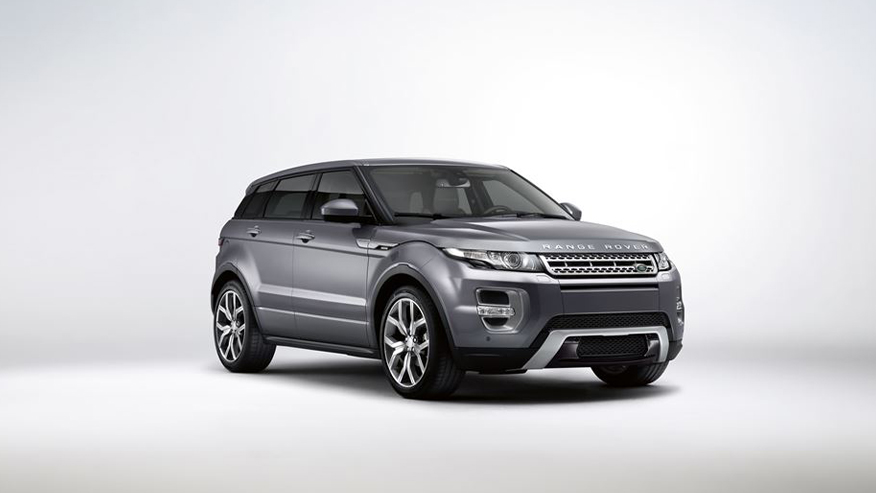
Diesel vs. Petrol Range Rover Evoque Engines: Which is Right for You?
Choosing between diesel and petrol Range Rover Evoque engines can be a challenging decision for buyers. Both methods offer unique benefits and drawbacks. They impact performance, fuel economy, maintenance, and overall driving pleasure. This article examines the petrol and diesel engines in the Range Rover Evoque. To assist you in making a decision, we compare their features.
The Range Rover Evoque is known for its luxury, versatility, and performance. You can prioritise fuel economy, power, the environment, or driving dynamics. You have to understand the distinct features of diesel and petrol engines. By analyzing these features, we intend to direct you to the engine that best fits your lifestyle and driving requirements. It ensures you get the best Range Rover Evoque experience.
Performance and Power Delivery
Diesel Engines
Diesel engines are renowned for their torque-rich performance. This means they have more pulling power, particularly at low rpm. This makes diesel-powered Evoques suitable for towing and off-roading. The increased torque output results in a more robust driving experience. This is especially true while travelling difficult terrain or carrying heavy objects.
Petrol Engines
In comparison, petrol engines produce higher horsepower. They also offer smoother and more responsive acceleration. This feature makes petrol-powered Evoques more suitable for city driving and highway cruising. In these areas, rapid overtakes and vigorous throttle response are valued. The higher RPM range of petrol engines provides a more vibrant driving experience.
Fuel Economy and Efficiency
Diesel Engines
In general, diesel engines have better fuel economy than petrol engines. This is because diesel fuel has a larger energy density and burns more efficiently. Long-distance travellers or individuals who drive many miles each year will benefit greatly from a diesel Evoque. Diesel engines are also more fuel-efficient in stop-and-go traffic. This makes them a viable option for mixed driving.
Petrol Engines
Petrol engines are less fuel efficient. However, advances in technology have helped reduce the gap. Modern petrol engines in the Range Rover Evoque include direct fuel injection and turbocharging. These features increase efficiency and performance. For drivers who mostly make short journeys or drive in cities, the difference in fuel economy may be less noticeable. The slightly more significant fuel expenditures may be mitigated by enjoying a more dynamic driving experience.
Environmental Impact
Diesel Engines
Diesel engines have been reviewed for their emissions, particularly nitrogen oxides (NOx) and particulate matter. Diesel technology has evolved. It currently includes exhaust treatment technology like SCR and particulate filters. Diesel engines still emit more NOx than petrol ones. However, they emit less carbon dioxide (CO2). This helps to reduce overall greenhouse gas emissions.
Petrol Engines
Petrol engines emit less NOx and particulate matter than diesel engines. However, they tend to emit more CO2. This means that, while petrol engines are better for local air quality, they contribute to global warming. Fortunately, higher pollution limits and the introduction of hybrid and mild-hybrid petrol variations are lowering the environmental effects of petrol engines.
Maintenance and Longevity
Diesel Engines
Diesel engines are extremely durable and long-lasting. When properly maintained, they frequently outlast petrol engines. They are designed to withstand high compression and stresses of diesel combustion. However, servicing diesel engines might be more costly. This is due to higher-priced components such as turbochargers and exhaust systems. Regular servicing is essential. It keeps diesel engines operating smoothly and avoids problems with filters and injectors.
Petrol Engines
Petrol engines require less maintenance and are simpler than diesel ones. However, they are typically less durable. They have fewer filter troubles and require less exhaust treatment. However, with heavy use, they may not last as long as diesel engines. Regular maintenance, such as oil changes and spark plug replacements, is essential for keeping a petrol engine operating for a long period.
Driving Experience
Diesel Engines
A diesel-powered Evoque provides a more comfortable, smooth driving experience with powerful low-end torque. This makes it well-suited for long journeys and off-road driving. The engine noise is often louder, which some drivers may find annoying. But, the latest diesel engines have cut noise and vibrations a lot. This has made them more comfortable.
Petrol Engines
Petrol-powered Evoques offer a quieter and more refined driving experience. The engine's smooth and linear power delivery makes for a more engaging and responsive drive. For those who prioritise a dynamic and sporty feel, especially in cities, a petrol engine is likely the best choice. The lower noise levels and refined operation add to the luxury feel of the vehicle.
Cost Considerations
Diesel Engines
Diesel engines often have a higher initial expense than petrol ones. This is due to the more complex engineering and additional components required to meet pollution requirements. However, using less fuel can help cover the initial cost, particularly for high-mileage drivers. It's also worth considering future resale value. Diesel automobiles tend to hold their value well.
Petrol Engines
Petrol engines usually have a lower purchase price and lower initial maintenance costs. However, increased fuel use can lead to higher long-term operating costs. The cost difference may be negligible for drivers with lesser annual mileage or who prefer the feel of a petrol engine.
To Conclude
Choosing between a diesel and petrol Range Rover Evoque depends on your driving behaviour. It is also dependent on your choices and priorities. Diesel engines provide greater fuel efficiency, torque, and durability. They are great for long travel and heavy use. Petrol engines are different. They offer a smoother, quieter, and more responsive driving experience. They are ideal for urban environments and short travels. Consider the benefits and downsides of each engine type. Then select the option that best meets your needs. The Range Rover Evoque provides excellent performance and luxury. Whether you choose diesel or petrol, the Evoque offers a driving experience that combines sophistication, capability, and style.